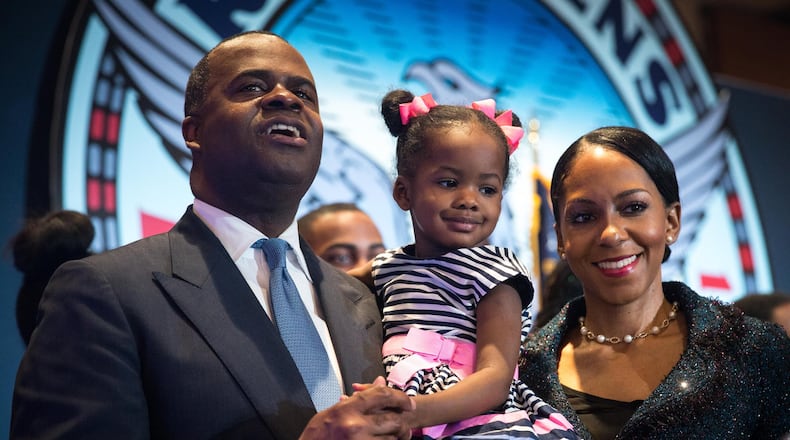Atlanta will seek to add a one-tenth of a penny increase to the city’s sales tax to create a dedicated source of funding for the arts, Mayor Kasim Reed announced Thursday.
“Organizations like the Woodruff Arts Center are thriving, but our small- and medium-sized groups, our young and emerging arts, need additional support,” Reed said during his final “state of the city” speech at the Marriott Marquis in downtown Atlanta.
“We need to give back to the creative community that gives so much to our city,” he said.
The push for the arts comes just months after voters approved two other sales tax increases in November for MARTA and city transportation projects, hiking Atlanta’s sales tax to 9 percent.
Reed also said that the city would spend $25 million to address homelessness, matching $25 million he said the United Way of Greater Atlanta has pledged to help in the effort.
“Today we are making a $50 million commitment that will reinforce Atlanta as a place where opportunity and human dignity come first,” he said.
Reed’s speech was punctuated by several standing ovations and a laundry list of his accomplishments during his two terms in office. Personal stories he shared about his relationship with former Mayor Andrew Young, including the elder statesman’s support during Reed’s first run for the office, brought tears to the eyes of many.
Reed, who is in the last year of his second term, told those assembled, including many members of Atlanta’s City Council, that pushing for sales tax referendum for the arts this November would be a nice going away gift.
“I hope my partners on the city council will make this so,” he said.
Proposed cuts to the National Endowment for the Arts and the National Endowment for the Humanities make the possibility of support from the city of Atlanta even more encouraging, arts leaders said.
“When public funding for the arts nationally is being threatened, it couldn’t come at a better time,” said Chris Appleton, co-founder and executive director of the community arts group WonderRoot.
Headquartered for the time being in a residential structure on Memorial Drive, WonderRoot provides studio and performance space for local artists, mounts exhibitions and offers classes and workshops.
The group is making plans to move to larger quarters in an old elementary school, also on Memorial.
Monica Campana, co-founder of Living Walls, said “It would make a huge difference, especially when it comes down to creating work for artists in the city, creating public art, being able to sustain the organization and feed people.”
Living Walls, which has created scores of murals on walls throughout the city, operated on a $100,000 budget for year. This was possible, said Campana, because “we had an all volunteer organization.”
Campana, who is also executive director, added “We have tripled the budget this year, and we are striving to be able to pay people that work for us.”
A steady supply of public funding helps smaller organizations plan for their futures.
Virginia Hepner, president and CEO of the Woodruff Arts Center, said, “By using just a sliver of public funding, we can leverage the massive private investment that’s already been made to build arts and culture organizations over the years… The revenue generated by these funds would be a stabilizing funding source that will help sustain many deserving arts and culture organizations across our whole community.
Does it have a chance to pass? “There have been so many times we have tried to raise funds in an alternate way sales tax funds, city funds, to help the organizations that are not the larger ones, but the ones who really do struggle from month to month or year to year,” said Annette Cone-Skelton, co-founder, executive director and CEO of the Museum of Contemporary Art of Georgia (or MOCA).
“I’m an optimist. I have seen it fail before, but it works in other cities.”
Keep Reading
The Latest
Featured




